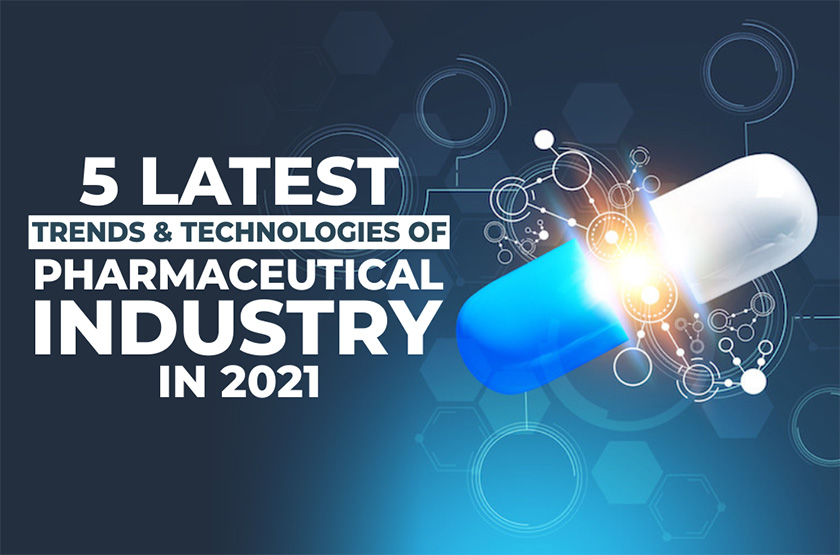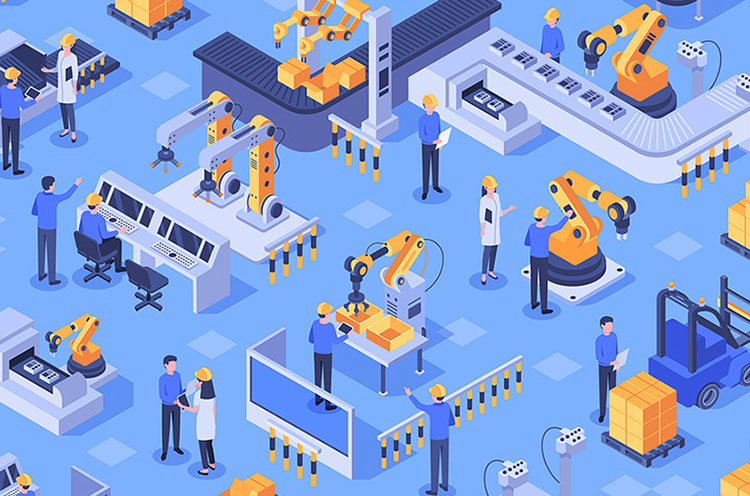
The pharmaceutical sector has been witnessing a remarkable transformation in recent years. Unlike other industries, the pharmaceutical industry has its niche for digitalization in research and development, sales and distribution, and other areas. New techniques have significantly increased high quality and low price medicines resulting in the success of the industry.
The Indian pharmaceutical companies have been facing challenges due to the Covid 19 Pandemic such as reliance on raw materials from foreign countries, taxations, market competitiveness, increased regulatory inspection, price controls, etc. However, the time has come to carve the future of Indian Pharmaceutical companies by adapting and following the latest Trends and Technologies of the Pharmaceutical Industry viz.
1. Use of Real World Data

The use of reliable and accurate value data is the prerequisite of the pharmaceutical industry. Hence, Real-world data (RWD) is the industry’s surfacing trend and plays a vital role in healthcare decisions. For example, the USFDA uses real-world data along with real-world evidence to determine a product’s safety and identify adverse events before making regulatory decisions. The product development and approval process function smoothly with the help of RWD. In addition, RWD is used to support pragmatic clinical and large simple trials. Systematic collection of health reports of patients, treatment data, and health status are included in RWD. Mobile phones, computers, biosensors, and wearable devices also collect and store health-related data with advancements in new technology. The analytical proficiency of RWD helps to conduct clinical trials in a better way.
2. Use of Precision Medicine

Precision medicine is one of the most attention-seeking pharmaceutical trends of 2021. As per the CAGR – Report by Market Research Future (MRFR), the market size of precision medicine will be worth USD 126.14 Billion by 2025 at a growth rate of 12.48%. As per the National Library of Medicine, Precision Medicine can be defined as “an emerging approach for disease treatment and prevention that takes into account individual variability in genes, environment, and lifestyle for each person.” Each human body responds to the drugs differently, and hence the idea of precision medicine intervenes. Pharmaceutical companies need to reevaluate their manufacturing practices to incorporate precision medicine as it will require a new regulatory, clinical, economic, and technical structure. Precision medicine gives a contemporary approach to the diagnosis of disease, treatment, and prevention. It supports the setting of dosage forms for patients by taking care of different clinical parameters such as age, sex, human genes, handling of more than one illness, etc.
3. Digitalization and Automation in the Supply Chain

Digitalization and automation in the supply chain are the dire need of companies to increase business in the competitive market. With technological advancements, digital data helps expedite the distribution of products in the market effortlessly. Therefore, to maintain an appropriate supply chain, pharmaceutical companies need a robust digital network. The use of machine learning and artificial intelligence in the supply chain minimizes the overall length of the production cycle, product storage, and distribution. Furthermore, streamlining the supply chain establishes smooth communication between researchers, organizations, and distributors, ultimately resulting in better product efficacy. As a result, many companies have started investing in digital and automatic drug supply chains to increase their efficiency of the business, cost reductions, and, most importantly, patient safety.
4. Use of Artificial Intelligence Technology

Currently, artificial intelligence is playing a pivotal role in the healthcare sector. As per the Grand View Research, “the global artificial intelligence in healthcare market size was valued at USD 6.7 billion in 2020 and is expected to expand at a compound annual growth rate (CAGR) of 41.8% from 2021 to 2028.” With artificial intelligence, drug discovery and development processes are getting accelerated at a significant level in the industry. This technology helps to find molecules for drugs and their development from the initial stage with better adequacy. Moreover, startup companies are using artificial intelligence to assist manufacturing processes, marketing, and post-launch strategies. In addition, artificial intelligence gives a practical approach for patient identification and eligibility for clinical trials. Thus, it makes the process faster and lower in price.
5. Growth in the Contract Manufacturing Organization Market

As per the latest market research, the “global pharmaceutical contract manufacturing market is likely to tread along a healthy growth track over the forecast horizon.” The main reasons for the increasing popularity of contract manufacturing are cost-efficiency and timely delivery of products. In addition to this CMO includes services such as clinical testing, product development, manufacturing of APIs and FDFs, regulatory support, etc. As a result, pharmaceutical companies can utilize their expertise, innovation, and insight to become more successful in the market. Moreover, it benefits the companies with the range of facilities, types of equipment, added drug variations, and meeting of the market demands leading to an improved scale of the business.
Summary:
We have discussed the latest trends and technologies shaping the present and future of the pharmaceutical industry. At NEWEDGE Overseas, with empowered technology and market intelligence, we provide advanced pharmaceutical solutions